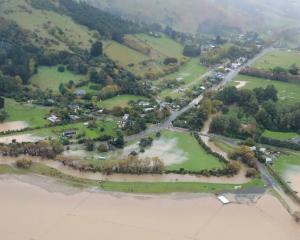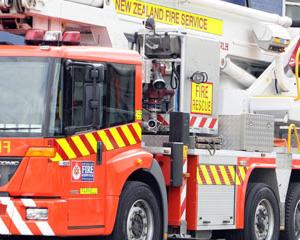
The age-old summer tradition of jumping off the Māpua Wharf has been protected after it was threatened by a boating safety bylaw.
Tasman District Council’s proposed Navigation Safety Bylaw contained a clause unintentionally banning people from jumping into water or swimming within 50 metres of a boat landing place at all times.
The rule would have ended the popular Māpua tradition of jumping off the town’s wharf, as well as impacting other popular swimming spots across the district like Lake Rotoiti or Tata Beach.
More than half (163) of the 256 submissions on the bylaw opposed the clause.
Council staff said the clause was drafted incorrectly and they had not intended to try and ban wharf jumping.
Ahead of Wednesday’s hearing on the draft bylaw, staff recommended the wording change to only prohibit swimming within 50 metres of a landing place while a boat was approaching or departing, or being berthed or unberthed.
That amendment reflected the council’s intention to ensure swimmers were kept safe from boats by ensuring the vessels had right of way at a landing place and was supported by councillors.
Long-time Māpua resident Judy Mitchell said she was “relieved” to know the council didn’t intend to ban wharf jumping when she presented to councillors on Wednesday’s hearing panel.

She said swimming and wharf jumping were a local tradition going back “generations” and contributed to Māpua’s vibrancy.
A ban would be “extremely difficult” to police and regularly defied, she thought.
Exemplifying water play’s generational importance to Māpua, Kate and Sonja Mitchell – Judy Mitchell’s daughters – also presented to the hearing panel about the bylaw.
Kate said that banning swimming was unnecessary as all wharf users already exercise common sense in the area, while Sonja said banning swimmers from the wharf would have been “unjustified”.
Sonja added that the updated wording of the rule was “marginally better”, she didn’t think the onus to remain safe lay with swimmers.
“Boats really should be getting out of the way of swimmers because they are the more dangerous users of the marine environment.”

“If there is maybe someone who is flustered or inexperienced at the helm, that could cause a problem so I would always err on the side of caution.”
Several submitters also raised concerns about the impact of powered vessels on the marine environment and its wildlife, particularly in relation to the Waimea Inlet.
Renshaw said the bylaw was focused on navigational safety.
“We need to look to other measures for environmental impacts and environmental concerns.”
The final version of the bylaw will be voted on by the full council on 24 October.
- Local Democracy Reporting is local body journalism co-funded by RNZ and NZ On Air













